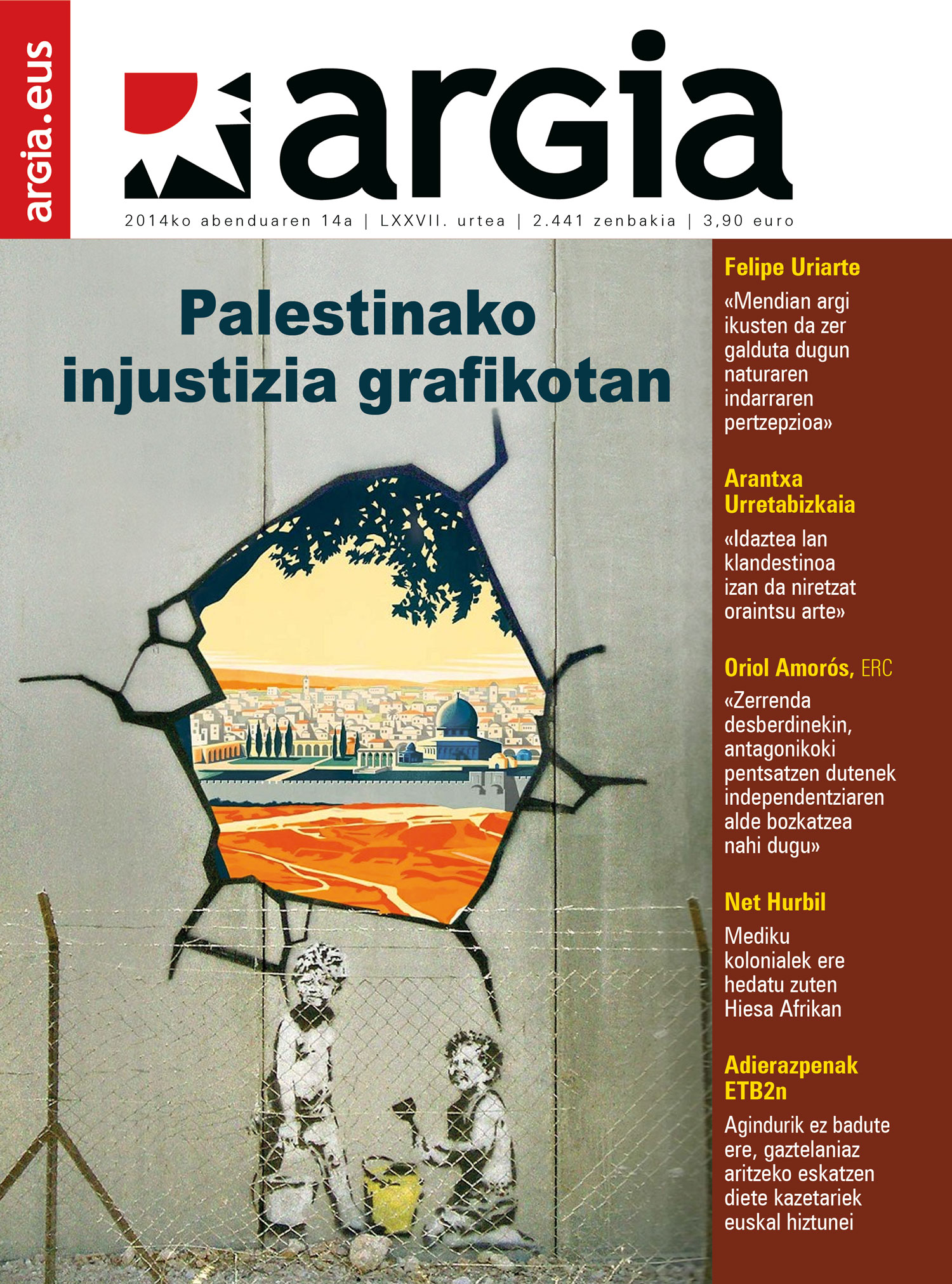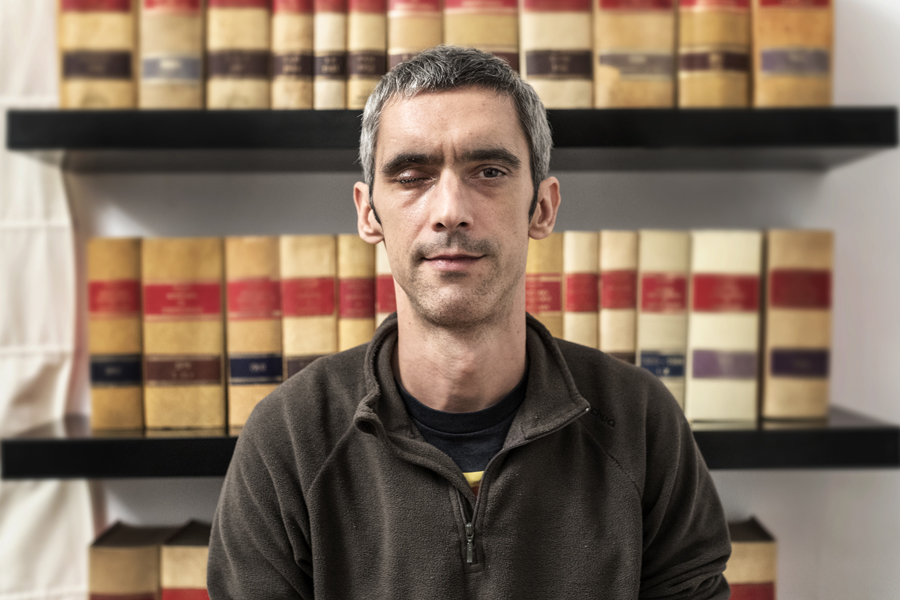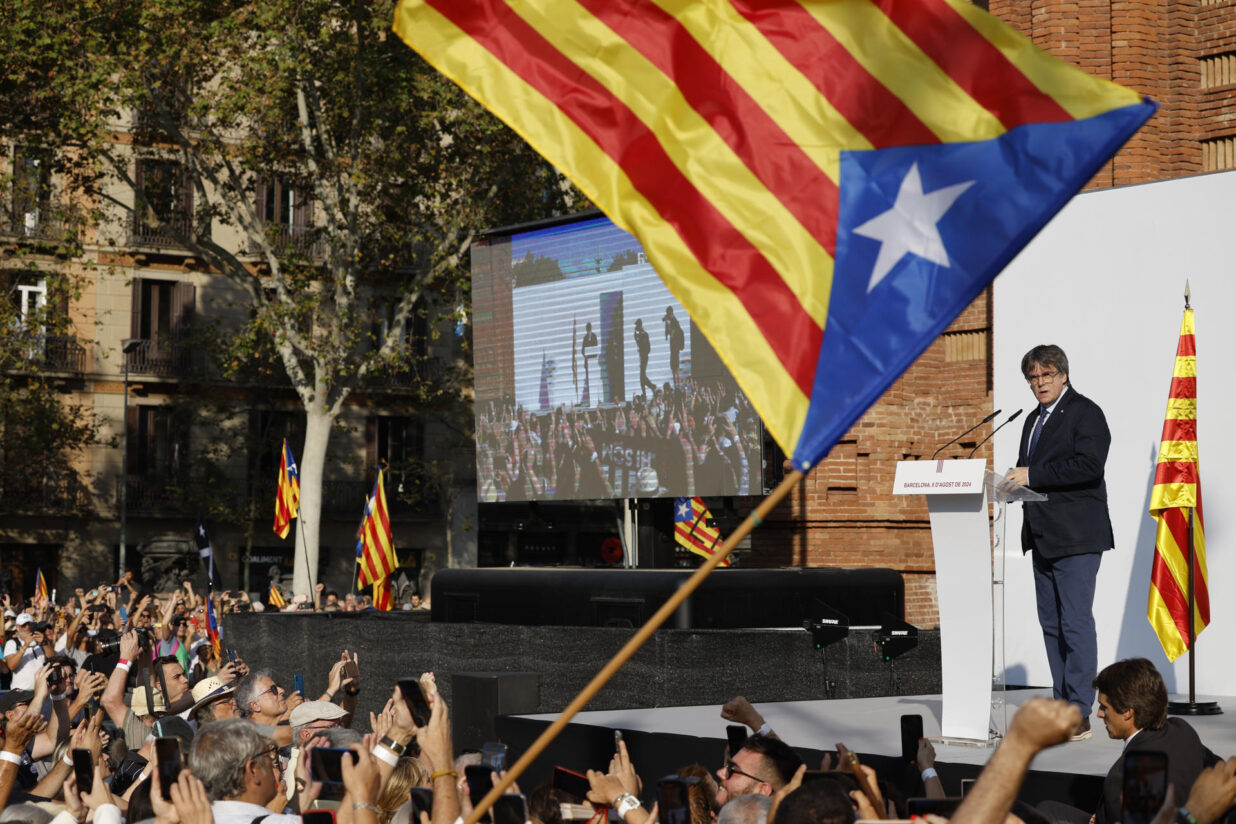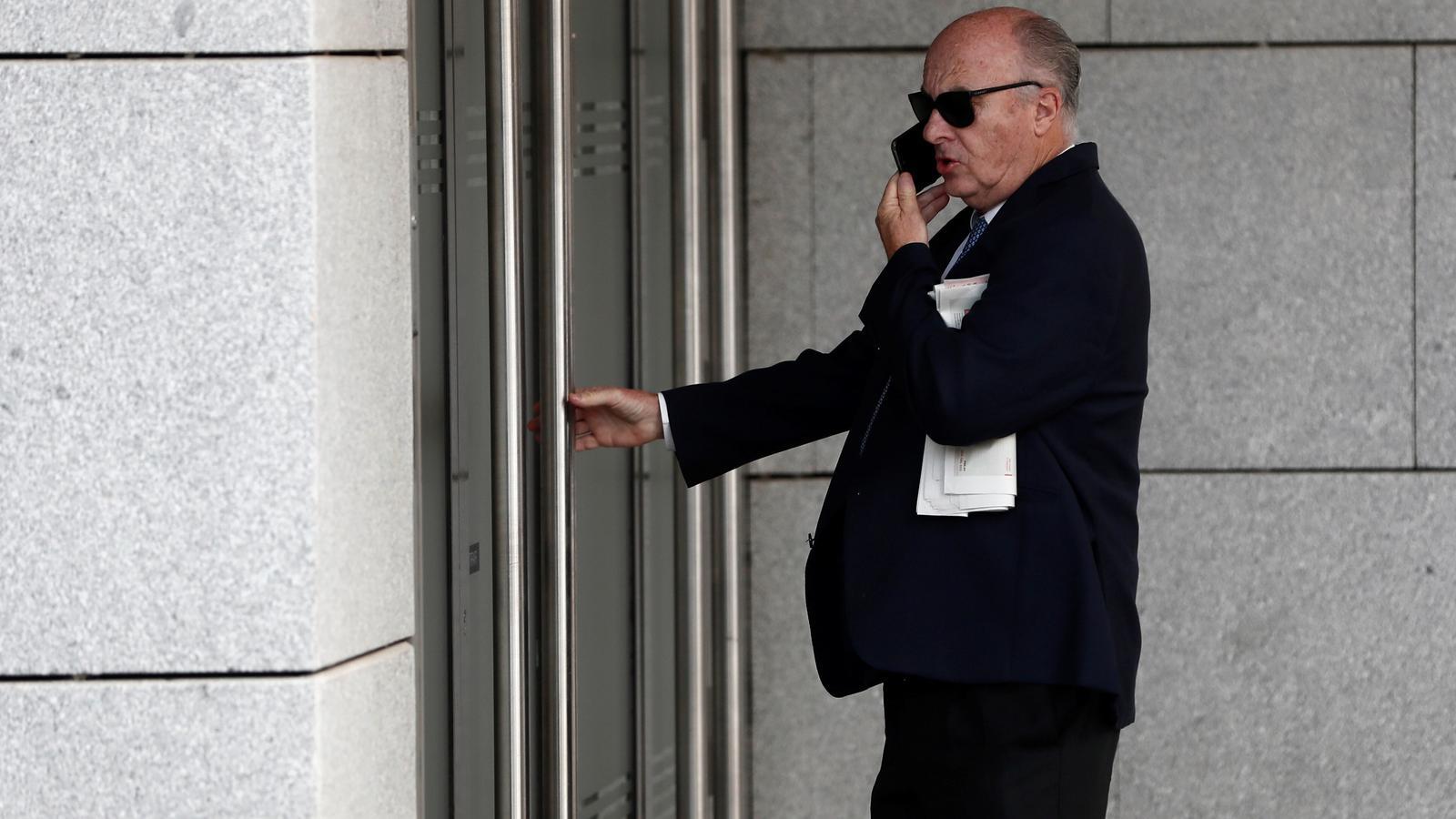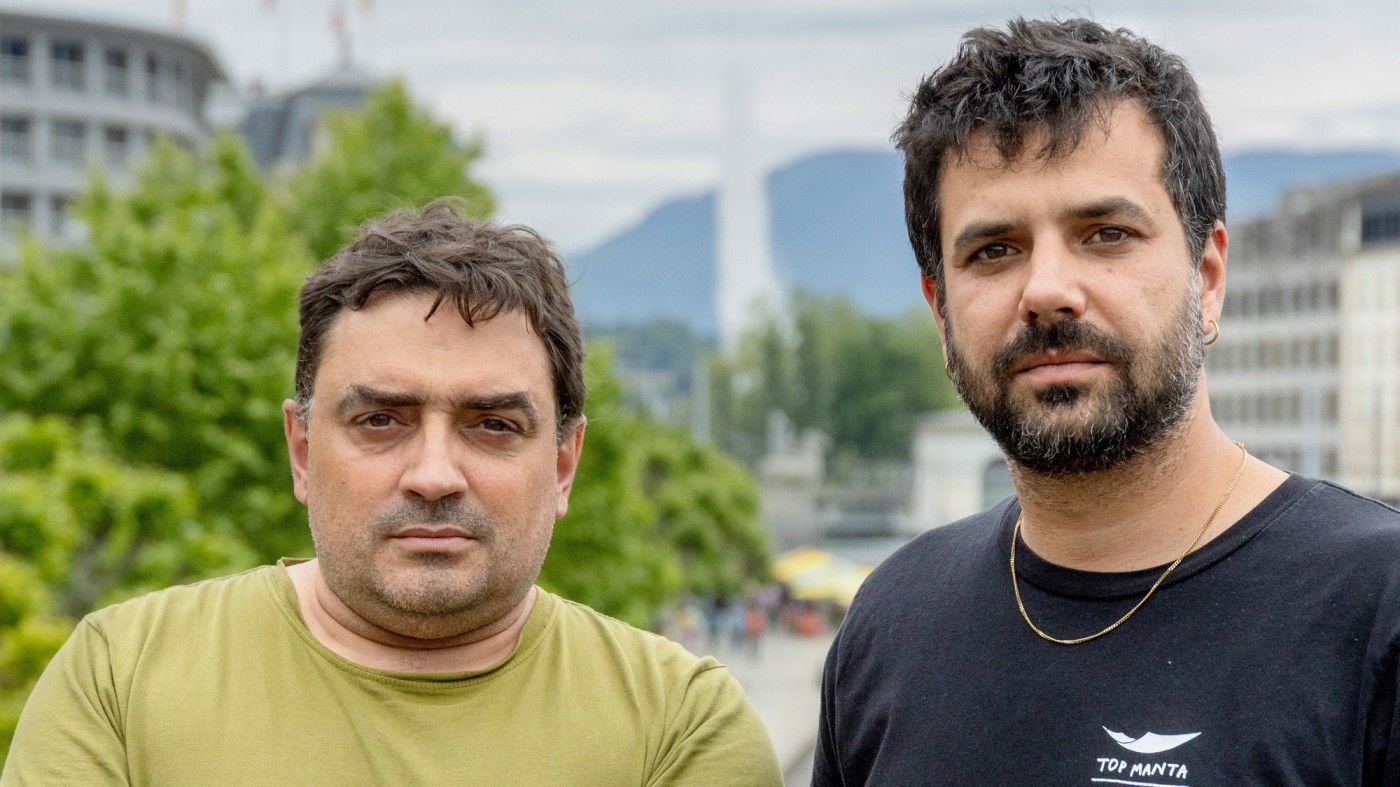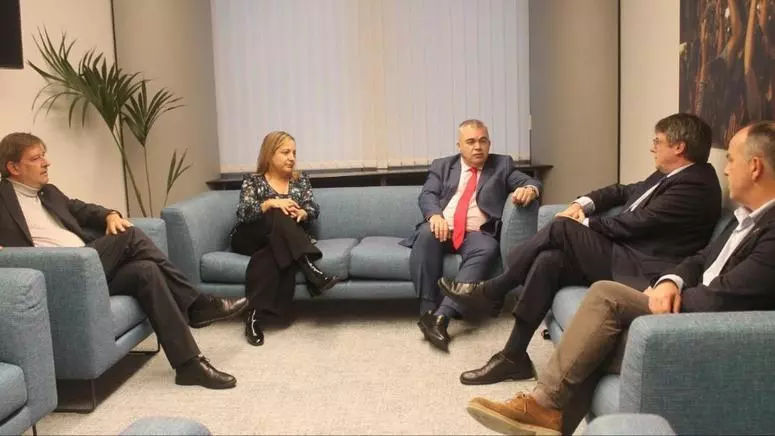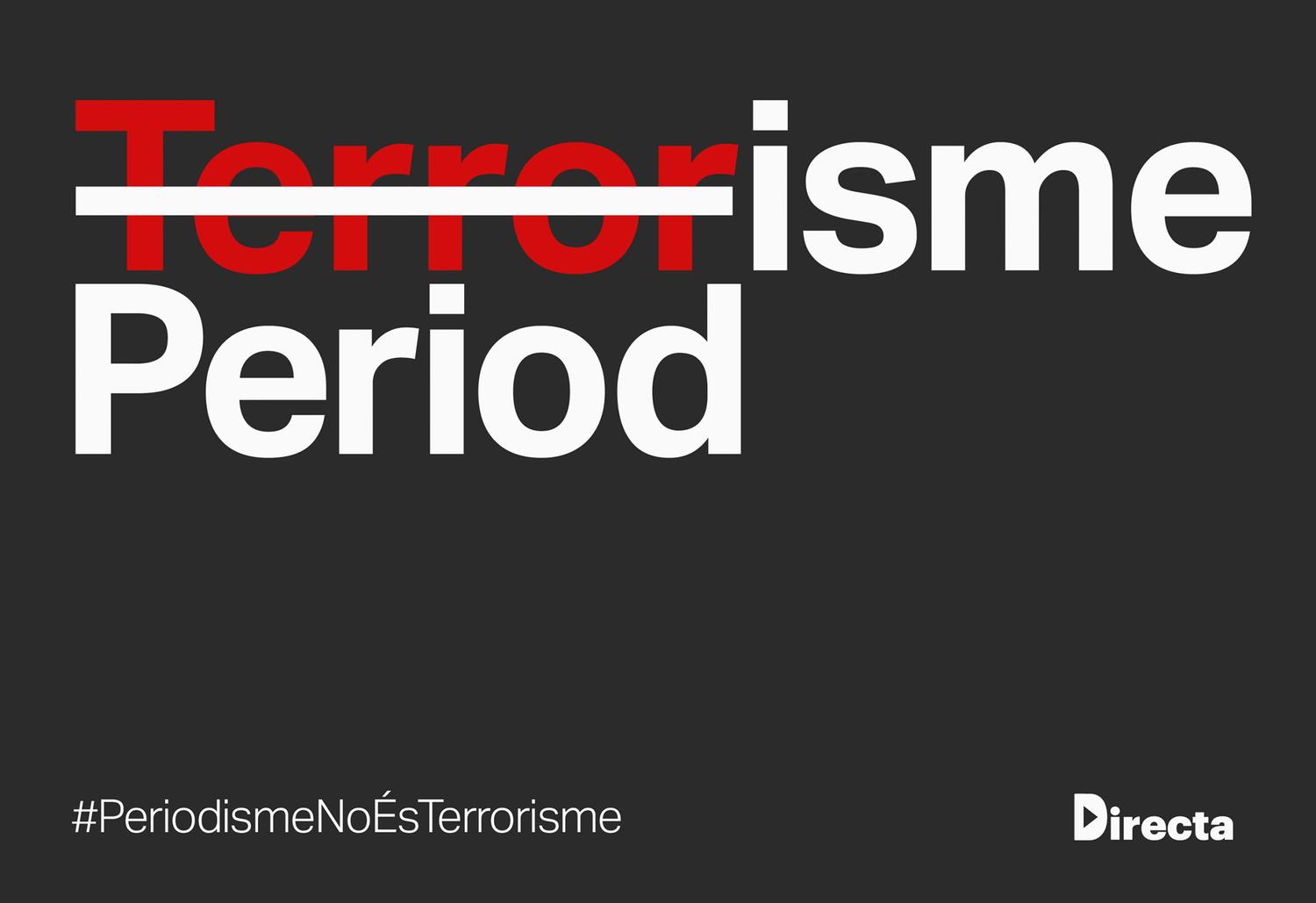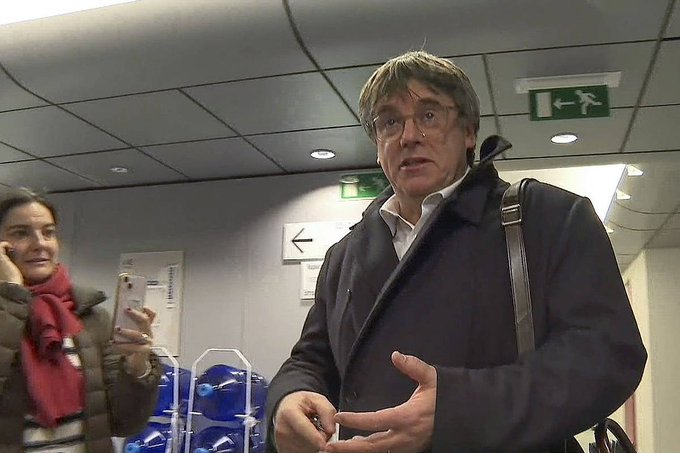"The first thing to do is to declare independence after the elections"
- Oriol Amorós (Barcelona, 1970) is a member of the executive of ERC and a deputy in the Parliament of Catalonia. We met him after President Artur Mas proposed independence and before ERC leader Oriol Junqueras endorsed him. There is no agreement at the moment, but at Amoros' goodbye, they will reach an agreement.
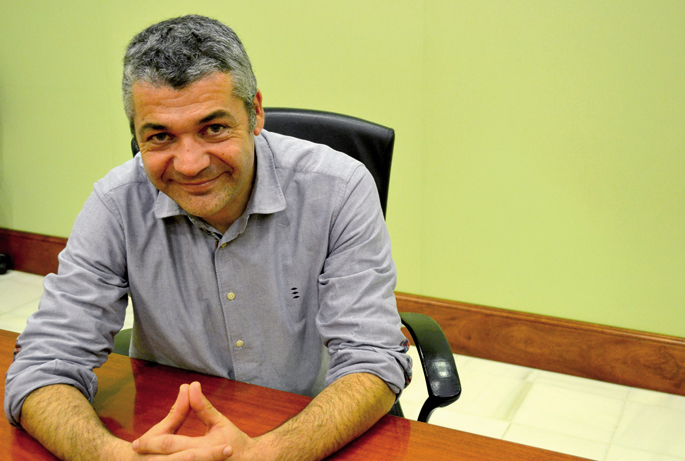
Not as the sovereign forces wanted it at first, but the Catalans were able to vote in the elections on 9 November and not in Catalonia. What reading does ERC do?
It was an absolutely positive day, in which 2.3 million Catalans were unwilling to go down the road in freedom. So it was a very big gesture, but it was a mobilisation. It was not a legally binding referendum, so it was not what we were looking for. But, from the point of view of the Catalan response, very positive, of course, because they chose to disobey the threats and aggressions of the representatives of the Spanish Government, prosecutors, etc., over all attempts to spread fear.
Despite the initial suspicions, you make a positive assessment.
Well, the only thing we said about the new November 9 was that it wasn't a consultation like the one that should have been the initial November 9. We lost an important element, we had to do a consultation, and in the end we did a participatory process. What has been a success as a mobilization, but not a consultation that has been ordered by Mas.
Could such consultation take place?
I think it is not worth discussing now. If the participatory process was to be pursued in the same way, the ordago could become too large. But it's no longer worth it.
1.9 million people voted for independence. Did you expect more?
We would always want more, but the figure is very important. In some elections, it would amount to a net absolute majority of 1.9 million votes. In addition, it should be taken into account that there were four times less schools than usual, that the information from the place where the vote was taken had not reached all the houses. And that the vote had taken place under threat. It happened to me that I was at the election table: some officials told me they wanted to participate, but because a judge could ask for the list of participants, they wouldn't vote.
What did ERC think of the proposal to achieve the independence of Artur Mas?
One step forward for two reasons: But he speaks for the first time of the horizon of independence and puts a date for the first time. It is a proposal and it must therefore be debated, we will make contributions to improve it. State structures, for example, should already be drawn up, as we agreed in this legislature. Therefore, the 18 months after the elections should be used to complete state structures, yes, but from sovereignty. If we do so under Spanish law, we already know what is going to happen, it will ban us all. Therefore, the first thing to do after the elections is to give the declaration of independence, a democratic mandate to the Government to work towards achieving independence.
Do you think it's a sincere proposition, or as many have said, it's a movement to save Mas's ass?
We are not going to judge intentions, we prefer to read the proposal. And we do it positively. We share with the president the will to hold plebiscite elections in early 2015, and the importance of those elections as a first step towards independence.
The highest representative of civil society, the Catalan National Assembly (ANC), was in favour of the proposal.
He said two things: That he would like the Mas proposal to be accepted by all parties, but that he would see any other way of achieving independence well. They therefore urge the parties to agree on this path.
ERC was reluctant to attend the elections on the single list, while ERC was reluctant. Following Mas’s proposal, lehendakari has been more flexible and flexible. What is the most effective way to achieve the independence majority?
We believe that some different lists can share a central point of the program. It's very important to find a way to bring together as many people as possible. Those who defend the totally liberal economic arguments are the supporters of independence. The same is true of the people on the left who have opposing proposals. I don't know if those two will be comfortable on the same list, and we want the two votes, we can't lose either of them. We want people who think about many things differently, even antagonically, to be able to vote in favour of independence. What we can do to ensure that all those who wish to vote for independence vote: to present a proposal for shared independence, to offer more than one list with different socio-economic programmes.
In short, you agree.
Surely society is asking us to reach agreements.
Does ERC defend Mas’s leadership?
Mas' leadership is very important, has a great international projection, is one of the assets of the process. And we don't want to lose any assets. The process also has a great virtue: plural character. All the demonstrations that have taken place since 2008 have been carried out by a very different group of people. Whatever the way to run for the upcoming elections, ERC will work to keep assets active.
CKD appeared as the first force in the last surveys. CIU has once again become the first force on the checklist after 9 November. Do you worry?
Nothing. Every time a survey comes out, we are asked for an assessment, and we have always said that what matters is the sum of the forces in favour of the right to decide. Of course, we wish the rest of the sovereign forces good results.
We have already said that, 1.9 million independentists. Some people speak of 300,000 fewer votes to achieve an absolute majority.
I agree, more support must always be sought. In order to attract more people in favour of independence, it is important to explain well why we want independence. We don't want to make a simple flag change, we want a new country model, and we need to look for the most support in the country model. There may be people who want independence, but who want a different country model. And, therefore, it can go further than plurality with a one-dimensional proposal. If there is a list or three for independence, I think no more, we need to find a way for people from different country models to see the hope of a new, better, clean people, just through independence.
If the latest public debates have not focused on reasons for and against consultation, for example, but on the benefits and disadvantages of independence.
You are right, we would like the debate to take place in those terms. But what has happened is that the most lively debate has been on a legal issue, on whether or not we can decide. And when you talk about whether independence can be good or bad, it's been done under threat. In the first debate, I recognise that we have had a tactical advantage: The State, always by no means, has helped to build the idea that democracy is synonymous with independence. That's why independence has grown. But in another debate, they have used a tactical advantage: they have put on the table a number of threats that are not linked by themselves to independence, but to the position of the State in the face of independence. They play the fear card, but at the same time they say they don't want anything good for us. And of course, who wants to be part of a project that doesn't want anything good for you?
A democratic regeneration of the Spanish state now refers to Podemos, how would the Catalan process affect it?
They told us: If we contribute to the realisation of the change of state, perhaps in a few years we will receive the recognition of the state. This story has been explained to us many times, and we have said yes, we have participated in bringing the Republic, in the Transition, into the European Union. However, we have received so many disappointments that we have learned the lesson. We can, we see that it follows the same steps. A few months ago he said that he was defending the right to decide of the Catalans, now he is saying that we should participate in a right to decide that it is up to all the Spaniards, to go towards a new Spain, and that there we will have the right to decide. And, excuse me, we now want the right to decide. If Spain is carrying out a regeneration process, very well, but we are already making a policy change. The Catalan process is a democratic revolution. In short, the political future of the peoples will be decided by the people. We are in the midst of a democratic revolution in the last four years.
Lau agenteak lesio-delituengatik ikertzen ari dira eta horrek galarazten du 2024ko amnistia aplikatzea. Polizia horietako batek, ustez, gomazko bala batekin begi bat zartatu zion Roger Español kataluniarrari.
Walk from a train station, two friends and a hug. This hug will be frozen until the next meeting. I'll come home, he'll stay there. There, too, will be free the painful feeling that injustice wants us to catch. Jesús Rodríguez (Santa Coloma de Gramenet, 1974) is a journalist,... [+]









